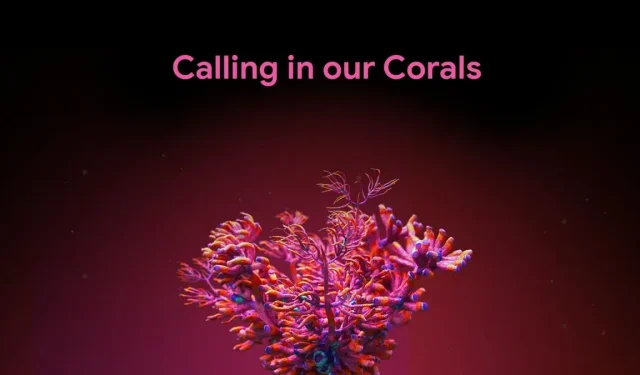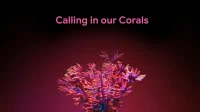Google wants to use your ears to save coral reefs. Our Calling in Corals project can be very helpful.
Google is calling on volunteers to help populate coral reefs. With its new project, created in collaboration with marine biologist Steve Simpson and marine ecologist Mary Chodipo, the giant is asking for your help in teaching AI to recognize the sounds of underwater wildlife in hopes of bringing it to life and… raising awareness of serious issues. around these habitats.
Google wants to use your ears to save coral reefs
Climate change, overfishing, pollution are many factors that are causing coral reefs to disappear from our planet. The new Google Arts & Culture experiment has a simple goal: take a few minutes to distinguish underwater sounds, and use that knowledge base to create an AI model to help with conservation. To participate, simply open a browser window, listen (preferably with headphones) to the underwater microphone recordings, and press or tap the button on the screen when you think you hear a fish.
“Coral reefs are amazingly noisy places, but they are being damaged or overexploited and silenced by a lack of marine life,” said Steve Simpson. “In some places, our research involves placing sound recording devices in protected areas (where there is no fishing) and next to fishing areas for comparison, to hear the benefits of this protection. Elsewhere, we are comparing sites that have fallen into disrepair due to overfishing and poor water quality with those where we are actively restoring the reef by replanting corals and restoring habitat.”
Our Calling in Corals project can be very helpful
“Too many records for one person, that’s where you come to the rescue,” he continues. “We need you and others like you to form a collective listening. Your data will be used to train computers to automatically listen for fish sounds.”Existing records have been made on 10 coral reefs including Australia, Indonesia, Philippines, USA, Panama and Sweden.
The researchers hope that this project will not only improve their ability to track the activity of marine life, but also help restore it. “New research has shown that playing these sounds through underwater speakers in damaged habitats can help attract new recruits – that’s why our project and dedicated platform is called Our Coral’s Call.”In other words, playing the sounds of healthy reefs can attract new fish and species and help revive healthy activity.
Participation takes only a few minutes. Of course, you can participate in sessions for as long as you like, but the more time volunteers spend on them, the more effective the project will be. Inviting the general public to participate is also a good way to raise awareness of an important and often overlooked aspect of our planet’s current difficulties.
If you are interested, or just curious, watch the video below and visit the project website.


